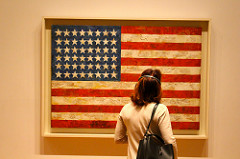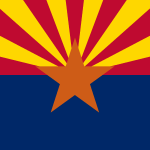I taught civics for over a decade. I took a personal vow to never disclose my political views to any student, to any staff member, or over any social medium. It was important to me that students were able to fully develop their political views without worry of disappointing me or making me proud. I generally picked apart all of their views on either end of the political spectrum and said,”Provide me with evidence. What supports your thinking?” Or I made them compromise with one another and take a different point of view. Although it was extremely challenging at times, I held back and did not share my point of view.
Life was easier then, back in good ole’ 2007. As hard as it is to believe, the parties were not nearly as divided, the political talk shows not nearly as angry. In the ten plus years where I worked with students on developing not only a love, respect, and understanding of the US Constitution, but also their own personal perspective on what the role of government should be, I never had a parent question what I was teaching. I live in a small town where everyone knows everyone. And, it is a very conservative community at that. Although my social media is private, I am friends with parents and siblings and ex-students because, well, it’s a small town.
I left the classroom three years ago and shed my skin as a civics teacher that would never publicly comment on any political matter. What caused this change? First, it was the state of schools in Arizona. As school reform and finance became more politically charged, I began to speak up. I would advocate here and there on education issues only. I still held true to my what-is-Mrs.-Festa mystique. I would sometimes share some historical Constitutional issues commentary or even some remarks by the Supreme Court, but I stayed out of the fray.
When I talk to the teacher who took my civics job, I feel the deepest respect. The political world is frankly different than it was even three years ago. Although teaching civics is not all politics, the political landscape touches a great deal on what is taught. It has got to be a lot more difficult to encourage 17-year-olds to compromise these days when we regularly just disconnect from people who disagree with our opinions and tell them they are dumb or evil.
As a teacher, it is difficult not to be political right now when so many decisions seem to have a direct effect on our kids. I was listening to a 24-hour news show that shared the story of a teacher who was arrested at a protest in Berkeley and tied that to the need for school choice. It implied that teachers were somehow biased against students who held opinions different from their own. So where is that line? Is it our duty to advocate for Dreamers? Do we need to be mindful of students who don’t feel this is appropriate? Am I alienating students’ families with my Facebook post about Colin Kaepernick? Did that Michelle Obama as Beyonce tweet just send a message to a kid that I don’t value him/her? Does sharing information about Confederate statues send a message that I hold a specific point of view and you as a student should hold it as well?
In a very short amount of time, I believe that teachers have had to become advocates. On our personal time, we should advocate like it is nobody’s business. We should thoughtfully fill our Twitter pages with articles that promote and support the protection of public schools. We need to exercise our first amendment rights in thoughtful ways and set good examples for those around us. We need to show others that there is room for compromise, but not accept anything less than what is right for students. I also believe we need to exercise caution when we talk to students directly and encourage them to develop their own ideas. We need to teach them that there isn’t only one correct political view and that they should value and respect one another’s opinion. The political arena is not a pretty one for adults. I am hopeful that we as educators do right by our students and teach them that civil discourse has to be alive and well in order to have a functioning democratic system of government. While I am no longer taking my vow of political silence, I am working every day on my vow of political respect and open mindedness, which is some days easier than others on social media. As a civics teacher, I owe that to my profession and to the next generation of citizens.










Comments 9
You know, in the subjects I teach – math, science, and language arts – i’d have to really push it to be able to rationalize bringing up my political opinions. In the larger context – outside of direct instruction – I have no qualms about letting colleagues know I lean to the right on most issues. I don’t get why we should hide our views and think being open about them leads to more tolerance and open-mindedness. What I find as a conservative in a profession overwhelmingly filled by liberals is that there are no conservatives among them that everyone holds their opinions. Plus, in conversations in small groups they will often speak of conservatives in the most disparaging and insulting terms possible. I’ve also often heard colleagues refer to students’s parents conservative views in the same way.
These days, it doesn’t seem fair to lump “conservatives” together into one group anymore!
That’s exactly right. It’s definitely a splintered ideology, with parallels to Sanders v Clinton liberals. I thought about bringing that up.
Hi Sandy, I really appreciate your comment. It shows me how damaging labels can be. The terms liberal, conservative, republican, democrat, etc. are, by their definition, terms that create conflict. Can you imagine if in the next round of elections, the candidates were not allowed to say which party they were affiliated with? This would require all of us to actually listen to their beliefs and identify which candidates upholds most of the paradigms that we value.
I totally agree. When we as educators label, we do great harm to ourselves and others.
I struggle with this too. This week my students presented an analysis of a speech by an American. I allowed them to select the speech as a way to increase motivation. The assignment requirements are clear; they must analyze appeals, speaker, audience, and purpose. Several times, I had to remind students the assignment is not an opportunity to present their political views. During one speech in particular, I had to bite my tongue as students presented a speech filled with illogical ideas and frankly, hateful rhetoric meant to spark the audience’s emotions. This is a trying and often murky climate for teachers. We must teach our students to analyze speakers and their evidence, but we have to keep our own political views under wraps. It’s like walking on a tight rope with our eyes closed.
Very well done. I shared this on my FB. For years I have done the same thing when it comes to questions about my politics. However, I feel that today that is harder and harder to do …
This raised some interesting points that I never think about as a preschool teacher The most controversial preschool topic is whether Lego Batman was better than the first Lego movie. But it makes me think about how teaching kids tolerance, respect, and the ability to think for themselves starts young and should continue throughout their school careers. Thanks for sharing!
The most controversial preschool topic is whether Lego Batman was better than the first Lego movie. But it makes me think about how teaching kids tolerance, respect, and the ability to think for themselves starts young and should continue throughout their school careers. Thanks for sharing!
Thank you for this article. It seems that today, a teacher is an advocate by default due to the nature of the profession. Also, in my reflection, the education years are the best years to expose students to the issues that will help form their character and values. Political and civil issues are often high interest and high impact areas for children.